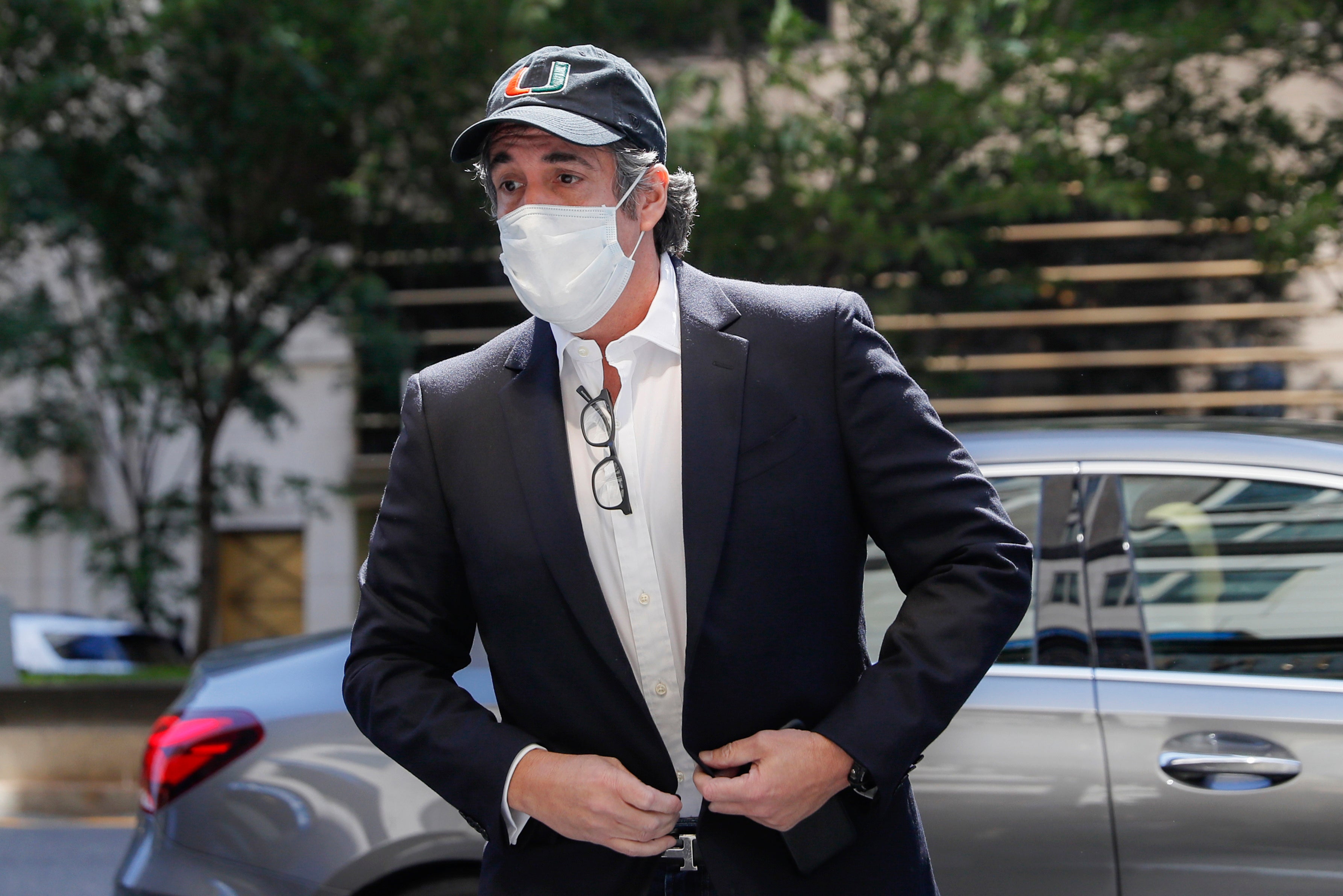NY prosecutors interview Michael Cohen about Trump finances
New York prosecutors conducted an hours-long interview Thursday of Michael Cohen, President Donald Trump’s former attorney

Your support helps us to tell the story
From reproductive rights to climate change to Big Tech, The Independent is on the ground when the story is developing. Whether it's investigating the financials of Elon Musk's pro-Trump PAC or producing our latest documentary, 'The A Word', which shines a light on the American women fighting for reproductive rights, we know how important it is to parse out the facts from the messaging.
At such a critical moment in US history, we need reporters on the ground. Your donation allows us to keep sending journalists to speak to both sides of the story.
The Independent is trusted by Americans across the entire political spectrum. And unlike many other quality news outlets, we choose not to lock Americans out of our reporting and analysis with paywalls. We believe quality journalism should be available to everyone, paid for by those who can afford it.
Your support makes all the difference.New York prosecutors conducted an hours-long interview Thursday of Michael Cohen President Donald Trump s former attorney, asking a range of questions about Trump's business dealings, according to three people familiar with the meeting.
The interview focused in part on Trump's relationship with Deutsche Bank, his biggest and longest standing creditor, according to the three people, who weren't authorized to discuss the investigation and spoke to The Associated Press on the condition of anonymity.
The interview, at least the second of Cohen by the Manhattan district attorney's office, comes amid a long-running grand jury investigation into Trump's business dealings. District Attorney Cyrus R. Vance Jr. has been waging a protracted legal battle to get access to the president's tax records.
The U.S. Supreme Court is expected to rule on Trump’s request for a stay and a further appeal after he leaves office Jan. 20.
The New York investigation is one of several legal entanglements that are likely to intensify as Trump loses power — and any immunity from prosecution he might have as a sitting president — as he departs the White House.
The Manhattan-based grand jury has been continuing its work despite the coronavirus pandemic, which has curtailed many court operations.
The Republican president also faces a civil investigation, led by New York Attorney General Letitia James, a Democrat, into whether Trump’s company lied about the value of its assets to get loans or tax benefits. Cohen also is cooperating with that inquiry.
He previously told Congress that Trump often inflated the value of his assets when dealing with lenders or potential business partners, but deflated them when it benefited him for tax purposes.
The White House declined to comment.
Trump has repeatedly called the investigations by Vance and James a baseless political “witch hunt."
Vance, a Democrat, has has declined to provide specific details about the investigation, but in court filings pointed to news reports of what prosecutors described as “extensive and protracted criminal conduct at the Trump Organization."
Among the reports Vance’s office referenced in court filings was a 2017 article about Ladder Capital, a commercial mortgage lender that made more than $250 million in loans to the Trump Organization that were secured by Trump properties. Jack Weisselberg, the son of Trump Organization Chief Financial Officer Allen Weisselberg, is a director of Ladder Capital.
Subpoenas issued in the investigation cover 11 entities engaged in business dealings as far away as Europe and Dubai, according to an appeals court judge speaking at a hearing on the matter.
Cohen, who is serving the remainder of a federal prison sentence on home confinement, has been asked by investigators to examine certain Trump Organization documents and to provide other details about its corporate structure, the people familiar with the matter said. Cohen pleaded guilty to evading taxes, lying to Congress and facilitating campaign finance crimes.
Germany-based Deutsche Bank continued to do business with Trump even after he defaulted in 2008 on a loan for his Chicago hotel and condo development. Trump sued the bank and others whom he blamed for his inability to repay.
But Deutsche Bank’s private banking division continued to lend to Trump, including $125 million to finance the purchase and renovation of his Doral golf resort in 2012, according to previous disclosures.